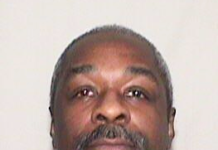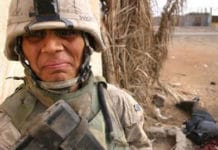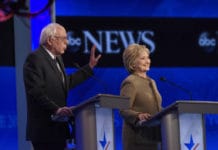by The People’s Minister of Information JR
This interview was recorded three years ago. Since then, Lynne Stewart has been locked up and given a 10 year sentence.

In the spirit of John Brown and Marilyn Buck, white people who paid tremendously for their alliance with the front line of the Black Liberation Movement, Lynne Stewart sits behind bars because she defended legendary people who had an impact on the true history of the United States, like Black Liberation Army members Sekou Odinga and Bilal Sunni Ali, as well as New York’s infamous Larry Davis and the blind Sheik, Omar Abdel Rahman, who was accused of trying to blow up the World Trade Center in 1993.
Lynne Stewart is definitely someone who has supported our community for decades and we owe it to her to show our support for her and her family during this era of the new and improved COINTELPRO, known as the Patriot Act. Check her out in her own words.
M.O.I. JR: How did you become an activist attorney?
Lynne Stewart: Well, I had been an activist first; then I went to law school. I came out. I had done some things and I was known within the activist community. And by 1981, there were all sorts of stuff jumping off as the FBI was really doing a repression of the underground movement.
First, I did a case involving the Spring Boks – that’s a rugby team from South Africa. When they visited, they had a few bombs and a few other things and people arrested at a demonstration for throwing acid at a cop. Then out of that, I represented people in the Brinks case. The Brinks case was a famous expropriation, being carried out by the BLA – Black Liberation Army – the Weather Underground and the May 19th Communist organization in upstate New York, which resulted in the death of two policemen and an armored car driver and the capture of Kathy Boudin, David Gilbert, Judy Clark and Sam Brown.
The FBI tortured Sam Brown and got him to reveal the whole underground network of the BLA connected to that case. And then I did the federal case. I sat with Sekou Odinga. I actually represented Bilal Sunni Ali. He was acquitted in that matter. Sekou of course was convicted. Sekou is still in prison. Sekou is someone that people should write to and think about; he is quite a wonderful person. I also did the United Freedom Party. I did a bunch of underground people who came out from the underground.
I’m proud to say that since this has happened to me, some of my old clients have come to me and said: “You know, Lynne, when you represented us, you were really one of us. We didn’t feel that you were like the lawyer, something apart.”
And the fact of the matter is, it was possible back in those days. My life could have taken that turn. It didn’t, but it could have. And I could have been in the same position that they were. So I never ever had anything but the greatest sympathy and empathy for all of them.
M.O.I. JR: What year did you start out as an attorney?
Lynne Stewart: I graduated from law school in 1976. I had been active in Harlem around the community control of schools for all of the ‘60s and into the ‘70s, and also in the anti-war movement. I was very, very active.
I now realize that we were the people who kept saying, “Vietnam, the Viet Cong should win,” which was the furthest out position of the anti-war demonstrators. So by ‘71, I went to law school, graduated in ‘76, opened up my own office in Greenwich Village and the rest is history.
M.O.I. JR: Can you tell us a little bit about the story of Sheik Omar Abdel Rahman and how you became his lawyer?
Lynne Stewart: Surely. By 1994, you know things had quieted down a great deal for political lawyers. There weren’t a lot of new cases because the political times had changed under Reagan and the FBI had rounded everybody else up. So, as a result, I was mainly doing big time criminal cases, including some involving mighty self defense against police officers, which we were winning. But by ’94, there wasn’t much out there for a political lawyer to be doing.

They indicted him actually for sedition – in other words, a plot to end the government as we know it. I met him. We hit it off. But I really felt that there was not enough time to prepare his case for trial and so then Ramsey Clark took me aside. Ralph, my husband, was with me and basically said: “You’re the last person that we got to go for this. This man is so important on the world scene and on the Middle East scene and he doesn’t have a descent lawyer. And we need him to have a good lawyer so we can hold our head up over there.”
He also said that I was the only one that could do it and I had to do it. And by the end of that conversation, I was on board. We tried that case for 10 months. (In) lawyering, you have to learn about anything, everything and everything.
It’s interesting. We were discussing Mumia Abu Jamal’s case this morning and we were discussing the ballistics in the case. What were the ballistics findings? What kind of guns were involved? Who had what gun? And you know it all comes back to me, because, as a criminal defense lawyer, I knew lots about what you would call “jammies.”
But at any rate, when I took on the Sheik’s case, I had to learn about Islam. I really didn’t know much about it, like most Americans. And because it was implicit in the case, our defense in the case was that he did nothing that a regular religious person on his level would not have done. And so it was very important to know Islam and so I learned it, I read it, I spoke to people.
And for me, that is part of the great thing about being a lawyer: You have to learn every client, every case. It’s a learning experience; then you carry that experience forward. So by the end of, I think, October of 1995, he was convicted on the word of a real informant that was working both sides of the street: the Egyptian side and the American side.
I never believed that he was guilty of the crimes that he was charged. He was a fiery preacher. He spoke bombastically. He was deeply anti-American because of the aid that they gave President of Egypt Mubarak, but he was never the leader of a plot to damage anything in this country.
M.O.I. JR: You spoke of his importance in the Middle East. Who was the Sheik before he was convicted in this plot?
Lynne Stewart: I believe his importance in the movements of the Middle East, particularly the Islamic Movement. Before the early ‘50s – I hope I’m getting this right and I hope people will forgive me if I am not exactly right – it was thought that an Islamic leader could not be deposed, that it was against the religion to go up against an Islamic leader.
There, a new thesis was put out, which the Sheik embraced and expanded upon. That was when the Islamic leader was really not an Islamic leader, that is, he wasn’t following the rules of Islam. He was really a, I think the word is, “apostate.”
He was secular, opposed to religious, and of course that is what they all are. They are religious in name only, but they do not follow the religion. And so he said that it is perfectly right then to oppose them and to oppose them by any means necessary. He built a large movement in Egypt called Jamal-Islamia and eventually that group was responsible for the assassination of Sadat.
Sadat was very much a part of the American apparatus. He was seconded, the original approach to Israel, which for the Palestinian people was the beginning of the end, because once the Middle East countries started to recognize Israel, they really had no foothold.
So he was all of that and, beyond that, he was a brilliant scholar and a person of great leadership. He represented himself in the trial for the murder of Sadat and was acquitted by an Egyptian court. He was active in Afghanistan in the days that the CIA wanted the Islamists to be our dearest friends and defeat the communists in Afghanistan. So he has been out and about, and he has done a lot of things and we’re proud to have represented him.
M.O.I. JR: Can you speak to how you got wrapped up in this legal situation where the government is targeting you?
Lynne Stewart: Well, I have always remained on watch with my clients, no matter if they were acquitted or convicted, and with the Sheik, he was isolated under a set of special regulations in the federal prisons. These regulations are, by now, recognized as being the same kind of torture that they have used on Jose Padilla and in Guantanamo.

So we get there in May of 2000 and here is this person suffering from diabetes, a bad heart, confined now to a wheelchair and diminished. And by that I mean he no longer had the same kind of, what would you call it, the edge, the stamina that he had once had. So he asked if I would make a press release on his behalf, giving his personal comments on a situation in Egypt that revolved around a cease-fire that an organization that he had founded had issued.
It was very clear to me and it was very clear to him that this was his personal opinion. He wasn’t calling for an end to the ceasefire. As a matter of fact, a week later, he issued a second press release to clarify that he was not asking for an end to the ceasefire. Nothing ever happened, and by that I mean there were no sudden guns in the streets or people getting killed.
About two months later, the U.S. government called and said, “You can’t visit him any more because you made a press release and that is against the rules,” and they said, “But we’ll talk about it.” Within six months, I was in to see him again. I thought that the matter was resolved, (that) it was all over.
Little did I know that Bush would be elected, Ashcroft would come into office, 9-11 would happen and they would go back in their old cases and dig this out and make it not into a break of a prison regulation – which might have cut me off from my client; actually, that’s what they said would happen – but instead they indicted me as materially aiding terrorism. And that case became a celebrated case. I hope because I fought back.
M.O.I. JR: What does that charge mean, to materially aid a terrorist organization?
Lynne Stewart: Well, you know the judge had a lot of trouble with it. He dismissed the first case that was brought against me, because he said no lawyer could ever figure out what it meant to represent a client and what was the line between materially aiding.
However, in the second time around, when the government indicted me, they had kind of a forced outlook, which was that I was materially aiding by providing my client and his words to a terrorist organization. Now of course I provided his words to Reuters, which is one of the biggest news agencies in the world. It was hardly a secret message smuggled out of the jail, which is what the government has always acted as if I was doing: smuggling out messages.
This was very openly done. It was done because I believed it was the right thing to do in order to keep him on a certain level. That means a level personally (concerning) his own health and also on the world scene, so that there was hope that some day he might be repatriated to Egypt.
M.O.I. JR: So what weight does that conviction hold? I was there when they convicted you. We were standing outside at a protest. What does that mean?
Lynne Stewart: Well, the government is using this law. It’s a very elastic law – you could almost arrest anyone. Couldn’t the warder also be arrested because he provides food and medicine and whatever to a convicted terrorist? I mean, it’s so elastic that you could almost get anybody snared in it. But, nonetheless, I was convicted; and the government asked for a 30-year sentence.
It’s possible to bump up the sentence to that degree. Here I am, never been convicted of anything, I’m 67 years old. I have medical problems. They have asked for 30 years. They have never budged from that. That is what they wanted, which makes us understand that really this is a showpiece: I am being made an example of.

All of these political lawyers got up there and argued to him that I should get no jail at all. He gave me 28 months as opposed to 30 years. He really was organized. And he was organized more by the letters that he received than anything else.
M.O.I. JR: Is this the first time that a lawyer has been prosecuted for aiding their client in American history that you know of?
Lynne Stewart: Well, that is a good question. You know, we all know the case of John Wilkes Booth and how his doctor that took care of him ended up on Devil’s Island for just carrying out his professional duties. A lot of lawyers have been persecuted.
Clarence Darrow was framed up in Los Angeles. He defended a couple of Irish fellas that blew up the newspaper place. Later, they came forth to the government and said that he had fixed the jury. And he tried that case himself and won. But he was very, very much diminished, very beaten by that case.
It is interesting that in the history, they haven’t gone after the lawyers that much. They do it in other ways of course: They make sure that you are cut off from clients; they make sure that your reputation is sullied in some way or another. This is really a new thing; this is a Bush thing. This is: “We are going to get rid of all the lawyers that annoy and harass us. They are too much trouble.” And they have done it very systematically.
The latest proof is when Gonzalez recently said, “We would have tried all of those fellas at Guantanamo, but the lawyers made all of these motions and all of this paperwork for us.” Hello Mr. Gonzalez. You know, you didn’t give anybody a lawyer for three years and now you are going to complain when the lawyers are finally in the case, doing their work. So, it hasn’t always been an attack on the lawyers; it is an attack on lawyering.
M.O.I. JR: So now where do you think this country is headed in regards to the profession of lawyering, looking at it from being in the scope of homeland security, the Bush regime and other fascist powers that are coming behind them?
Lynne Stewart: I probably need a couple of hours to really do justice to such a good question. But the reality is that we are marching towards the police state. Certain communities have always had the police state. We all know which communities those are. But now it has really become blatant and obvious and the real question is will the people wake up and put together some kind of mass movement to stop it.

I always said that what was most dangerous about what happened to me was the notion that the government made the regulation. When the regulation was broken, they then came over the top with this enormous indictment. It certainly makes you afraid to make an independent decision with your client as to what might be best for him.
But you know, I’m optimistic. I believe the people will rise up. I believe we will come out of this stronger and better. I hope we can get rid of some of this. I would not be at all unhappy if Rumsfeld was arrested as a war criminal, to say nothing of Cheney and Bush. However, I know it is a long process.
I am right now fighting my appeal. I hope to be vindicated. I hope to be able to fight this from the best place for me, and that is in the courtroom, as the People’s Lawyer.
M.O.I. JR: What is the status of your co-defendants?
Lynne Stewart: Ahmad Sattar, the person who got 18 years and who I also believe is completely innocent in this case, is at Florence – that is the maximum, maximum joint in the federal system. He’s in the special one they call the Al-Qaeda Wing. It’s for Muslims who have been convicted of federal crimes. It’s a very hard time, no contact visits. They are really buried alive in the middle of Colorado.
Mohamed Yousry is also free on bail, but he has had a very difficult time finding work of any kind. He is working on his Ph.D thesis, but you know that’s hardly something that pays you a salary. He tried to get a job as a truck driver, but you know they have these homeland security lists and so he was bumped by the people who had hired him.
Myself? I am out here and I am speaking out, trying to raise consciousness, make sure that we can keep this thing going and challenge this really terrible regime we have in Washington.
M.O.I. JR: What is the last thing that you want to say to the Block Report Radio listeners?
Lynne Stewart: Well, I would urge your listeners to get involved, to agitate. There is more to life than sitting in front of a TV with a remote control. People had better get out there and get their neighbors out there, because you know the day might come when you won’t be able to get out there and they’ll just be rolling up with the old police trucks and loading you in.
So unless we get out there, protect the rights we have, speak up and speak out and become strong as a community, they are going to do pretty much what they want and we don’t want to wake up and have it all gone. Fight, agitate, resist.
M.O.I. JR: Do you have a website where people could get some more information about you?
Lynne Stewart: Yes, it is very simple: lynnestewart.org. And I just want to say as a final little footnote, JR, that when I go to New York and some of my old clients drop by, they say: “You know, Ms. Stewart, they didn’t come after you because of that Muslim with the turban on. They came after you because for 30 years you fought in the Black community for Black rights and for Black defendants.”
I think it had something to do with it. I’m sure it had something to do with it. They don’t like lawyers that do that. Thank you.
Email Minister of Information JR, Bay View associate editor, at blockreportradio@gmail.com and visit www.blockreportradio.com. And send out sister some love and light: Lynne Stewart, 53504-054, FMC Carswell, Unit 2N, P.O. Box 27137, Fort Worth TX 76127.
Ralph Poynter lauds his wife, Lynne Stewart, on her last birthday, Oct. 13, 2010.

 Store
Store












